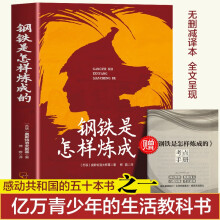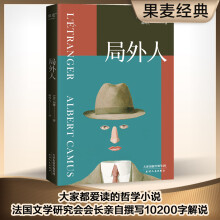《世界名著阅读丛书:爱默生随笔(英文原著插图中文导读)》:
Thus is the universe alive. All things are moral. That soul which within us is a sentiment, outside of us is a law. We feel its inspiration; out there in history we can see its fatal strength. "It is in the world, and the world was made by it." Justice is not postponed. A perfect equity adjusts its balance in all parts of life. Hoi kuboi Dios aei eupiptousi,-The dice of God are always loaded. The world looks like a multiplication-table, or a mathematical equation, which, turn it how you will, balances itself. Take what figure you will, its exact value, nor more nor less, still returns to you. Every secret is told, every crime is punished, every virtue rewarded, every wrong redressed, in silence and certainty. What we call retribution is the universal necessity by which the whole appears wherever a part appears. If you see smoke, there must be fire. If you see a hand or a limb, you know that the trunk to which it belongs is there behind.
Every act rewards itself, or, in other words integrates itself, in a twofold manner; first in the thing, or in real nature; and secondly in the circumstance, or in apparent nature. Men call the circumstance the retribution. The causal retribution is in the thing and is seen by the soul. The retribution in the circumstance is seen by the understanding; it is inseparable from the thing, but is often spread over a long time and so does not become distinct until after many years. The specific stripes may follow late after the offence, but they follow because they accompany it. Crime and punishment grow out of one stem.
Punishment is a fruit that unsuspected ripens within the flower of the pleasure which concealed it. Cause and effect, means and ends, seed and fruit, cannot be severed; for the effect already blooms in the cause, the end preexists in the means, the fruit in the seed.
Whilst thus the world will be whole and refuses to be disparted, we seek to act partially, to sunder, to appropriate; for example,-to gratify the senses we sever the pleasure of the senses from the needs of the character. The ingenuity of man has always been dedicated to the solution of one problem: how to detach the sensual sweet, the sensual strong, the sensual bright, etc., from the moral sweet, the moral deep, the moral fair; that is, again, to contrive to cut clean off this upper surface so thin as to leave it bottomless; to get a one end, without an other end. The soul says, "Eat;" the body would feast. The soul says, "The man and woman shall be one fresh and one soul;" the body would join the fiesh only. The soul says, "Have dominion over all things to the ends of virtue;" the body would have the power over things to its own ends.
The soul strives a main to live and work through all things. It would be the only fact. All things shall be added unto it,-power, pleasure, knowledge, beauty. The particular man aims to be somebody; to set up for himself; to truck and higgle for a private good; and, in particulars, to ride that he may ride; to dress that he may be dressed; to eat that he may eat; and to govern, that he may be seen. Men seek to be great; they would have offices, wealth, power, and fame. They think that to be great is to possess one side of nature,the sweet, without the other side, the bitter.
This dividing and detaching is steadily counteracted. Up to this day it must be owned no projector has had the smallest success. The parted water reunites behind our hand. Pleasure is taken out of pleasant things, profit out of profitable things, power out of strong things, as soon as we seek to separate them from the whole. We can no more halve things and get the sensual good, by itself, than we can get an inside that shall have no outside, or a light with-
out a shadow. "Drive out Nature with a fork, she comes running back."
……
展开










